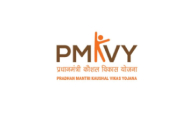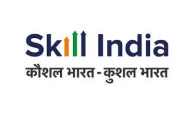NAPS was launched in August 2016 by Government of India to promote the Apprenticeship in the country by providing financial incentives, technology and advocacy support.
The scheme has the following two components
- Sharing of 25% of prescribed stipend subject to a maximum of Rs. 1500/- per month per apprentice with the employers.
- Sharing of basic training cost up to a maximum of Rs. 7,500 per apprentice.
- Wider option for the apprentices-integration with other schemes - Courses approved by State Government/Central Government such as PMKVY, DDU-GKY etc. shall be linked with apprenticeship training. These courses will be given status of optional trades & the relevant practical content for on-the-job training shall be added by respective course approving authority.
- Ease of Administering through technology - A specially designed online portal “www.apprenticeshipindia.org” shall be used for administering the entire implementation of the Apprenticeship Training online. It shall facilitate the requirements of all key stakeholders such as Candidates, Industry, DGT, RDSDEs, NSDC, SAA, SSDMs and BTPs
- Involvement of States/UTs - As per the Apprentices Act, monitoring of apprenticeship training in State Public Sector Undertakings and Private Sector Establishments is done by the respective State Governments. States have a very important role in implementing the programme as most of the smaller Industries and MSMEs come under the State jurisdiction. Hence, sensitizing the states & State Skill Development Missions (SSDMs) & also officers up to the District level, on the intent of the reforms becomes critical & a matter of priority. The District Skilling Committees being promoted by both the Central and State governments will be mandated to identify apprenticeship opportunities in their district and ensure appropriate utilisation of same.
- Promoter and Facilitators/Third Party Aggregators (TPA) - Since this scheme involves multiple stakeholders, the role of facilitators or Third Party Aggregators (TPAs) becomes important for mobilizing the apprentices, mapping their preferences with the demand from the establishments for apprenticeship opportunities posted on the portal, and helping the establishment in identifying Basic Training Providers. TPAs are engaged as per the guidelines issued by MSDE for their selection.
The Regional Directorates of Skill Development and Entrepreneurship(RDESE) under Directorate General of Training (DGT) are the implementing agencies in their regions in respect of all “Designated Trades” under the Act for all establishments falling under the Central Government jurisdiction. National Skill Development Corporation (NSDC) and CEOs of the Sector Skill Councils are the implementing agencies in their sectors in respect of “Optional Trades” for the establishment under the Central Government jurisdiction.
The respective State Governments are the appropriate authorities in respect of any establishments other than those falling under the Central Govt. jurisdiction. State Apprenticeship Advisers (SAA) are implementing agencies in their regions in respect of all “designated trades” a well as “optional trades” for State Public Sector Units and private establishment falling under their jurisdiction as per the Apprentices Act 1961. They may also appoint the “Mission Directors” of the respective State Skill Development Missions (SSDMs) to act as implementing agency for all establishments under the State Government jurisdiction, in respect of “Optional Trades”.




